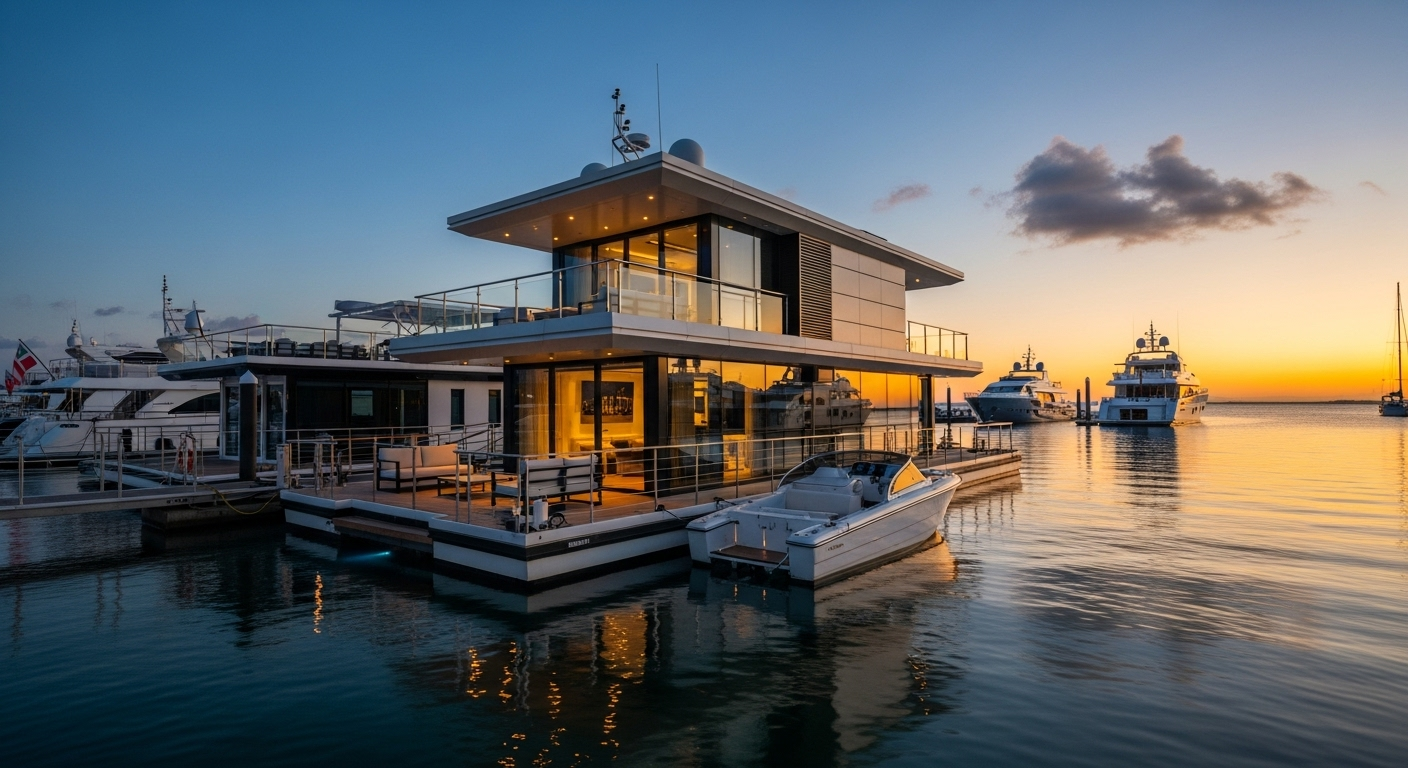Luxury Floating Homes: The Next Frontier in Waterfront Living
Introduction: In a world where prime waterfront real estate is becoming increasingly scarce and expensive, an innovative solution is making waves in the luxury property market. Floating homes, once considered a niche or alternative lifestyle choice, are now emerging as a sophisticated and sought-after option for high-end buyers. This trend is reshaping our understanding of waterfront living and opening up new possibilities for both developers and homeowners.

The concept of floating homes dates back centuries, with examples found in various cultures around the world. However, it’s only in recent years that they’ve gained traction in the luxury real estate market. This shift is driven by factors such as land scarcity, climate change concerns, and a growing desire for unique living experiences.
Market Demand and Growth Potential
The luxury floating home market is experiencing significant growth, with demand outpacing supply in many desirable waterfront locations. According to recent market research, the global floating houses market is expected to grow at a compound annual growth rate (CAGR) of over 7% between 2021 and 2026.
This surge in interest is not limited to traditional maritime regions. Cities like Amsterdam, Seattle, and Dubai are embracing floating home communities as part of their urban development strategies. These projects are attracting both domestic and international buyers, contributing to a diversification of the luxury real estate portfolio.
Technological Advancements and Sustainability
One of the key factors driving the rise of luxury floating homes is the rapid advancement in construction technologies and materials. Modern floating homes are built using lightweight yet durable materials that can withstand harsh marine environments. Innovations in anchoring systems and stabilization technologies ensure that these homes provide a stable living experience comparable to land-based properties.
Sustainability is another crucial aspect of this trend. Many luxury floating homes incorporate eco-friendly features such as solar panels, rainwater harvesting systems, and energy-efficient designs. These homes often have a smaller environmental footprint compared to traditional waterfront properties, appealing to environmentally conscious buyers.
Legal and Regulatory Considerations
As the floating home market expands, legal and regulatory frameworks are evolving to accommodate this new form of real estate. Prospective buyers and developers need to navigate a complex landscape of maritime laws, zoning regulations, and property rights.
In some jurisdictions, floating homes are classified as vessels, while in others, they’re treated as real property. This distinction has significant implications for financing, insurance, and property taxes. As the market matures, we’re seeing more standardized regulations and specialized legal services emerging to address these unique challenges.
Investment Potential and Market Outlook
From an investment perspective, luxury floating homes present an intriguing opportunity. While they come with unique considerations, such as maintenance requirements and potential depreciation, they also offer several advantages:
-
Scarcity value: With limited waterfront locations available, floating homes can command premium prices.
-
Flexibility: Unlike land-based properties, floating homes can potentially be relocated, offering a unique level of adaptability.
-
Rental income potential: In popular tourist destinations, luxury floating homes can generate significant rental income.
-
Appreciation potential: As the market matures and technology improves, early investors may see substantial appreciation in value.
However, potential investors should be aware of the risks, including environmental factors, regulatory changes, and the relatively limited resale market compared to traditional real estate.
Conclusion
Luxury floating homes represent a fascinating convergence of real estate trends, technological innovation, and changing lifestyle preferences. As urban waterfronts become increasingly crowded and expensive, these unique properties offer a fresh perspective on waterfront living.
While challenges remain, particularly in terms of regulation and infrastructure, the growing demand and ongoing technological advancements suggest a bright future for this sector. For investors, developers, and homebuyers looking for something truly distinctive, luxury floating homes offer an exciting opportunity to be at the forefront of a potentially transformative trend in real estate.
As we look to the future, it’s clear that the concept of “home” is evolving, and luxury floating residences are playing a significant role in shaping this new frontier of waterfront living. Whether as a primary residence, a vacation home, or an investment property, these innovative dwellings are making waves in the world of luxury real estate.





